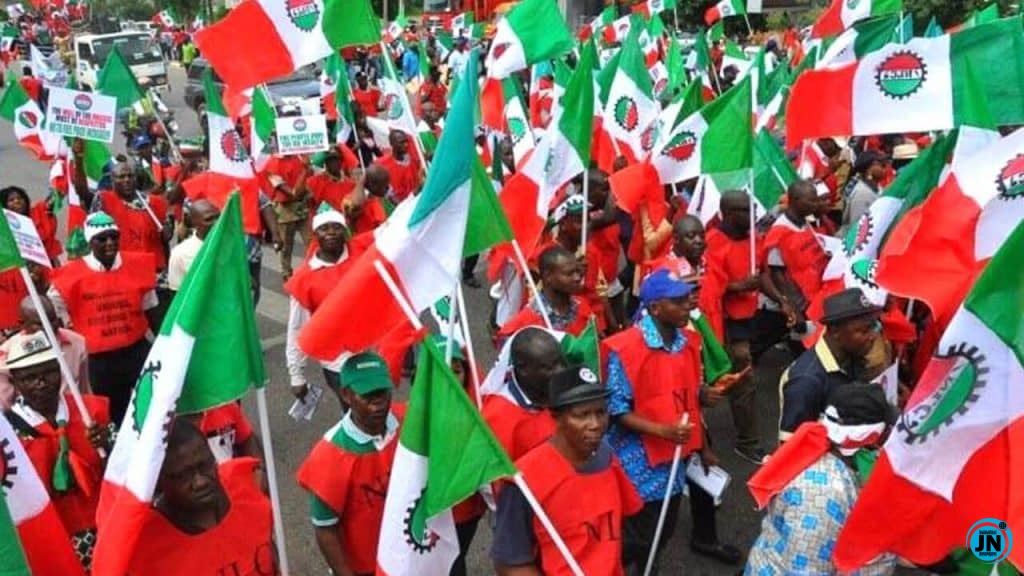The Nigerian Labour Congress (NLC) has sharply criticized the latest unemployment report released by the National Bureau of Statistics (NBS), arguing that it does not accurately reflect the current economic conditions in Nigeria. The NLC’s response comes after the NBS published a report showing a decline in the national unemployment rate, which the Congress claims is misleading.
The NBS reported a decrease in Nigeria’s unemployment rate to 4.3% in the second quarter of 2024, compared to 5.3% in the first quarter of 2024 and 5.0% in the third quarter of 2023. This reduction was presented as evidence of improved labour market conditions, signaling a positive shift in the country’s job market. However, this report has drawn sharp criticism from the NLC, which has called into question the validity of the findings and the methodology behind them.
In an interview with The Punch, Chris Onyeka, the National Assistant General Secretary of the NLC, dismissed the report as a “voodoo document” that does not reflect the severe economic challenges faced by Nigerians. He categorically rejected the claim that unemployment in the country was decreasing, describing the reported figures as a “fabrication meant to mislead the public.” Onyeka argued that it was inconceivable for unemployment to be falling when so many factories and businesses are closing down across the country due to financial difficulties and economic pressures.
He said, “Unemployment cannot be coming down in Nigeria when factories are closing shops.” Onyeka also pointed out the rising inventory levels and decreased consumer spending as clear indicators of economic distress, arguing that these factors point to an increase, rather than a decrease, in unemployment. He stated, “It cannot be coming down when there is increasing inventory and reduced consumer spending. If anything, unemployment is increasing.”
Further challenging the NBS report, Onyeka questioned the methodology used to compile the statistics, alleging that the data was manipulated to present a false picture of the country’s economic situation. He described the unemployment figures as a “figment of imagination concocted by people who want to manipulate figures.” Onyeka expressed concern that the NBS had failed to offer a clear explanation of how it arrived at its conclusions, which he said further undermined the credibility of the agency.
Onyeka criticized the disconnect between the reported data and the visible economic struggles on the ground, noting that the official figures did not align with the everyday realities faced by ordinary Nigerians. He asserted that when official data does not reflect the lived experiences of the population, it becomes irrelevant and loses its credibility. “Once data does not reflect reality, it loses relevance. Unfortunately, the NBS has lost credibility as a result of the data they continue spewing out,” he remarked.
As part of his challenge to the NBS, Onyeka asked the agency to clarify which sectors were supposedly generating jobs in the economy. He demanded to know the source of these purported employment gains, questioning whether the job creation was occurring in industries where employers are reportedly struggling due to slowing economic activity and consumer resistance. “Where are the jobs coming from? Is it from employers who are complaining of consumer resistance and slowing economic activities? It doesn’t add up,” Onyeka said.
Onyeka likened the situation to what he called “INEC-style manipulation,” a term he used to draw comparisons between the Nigerian Electoral Commission’s alleged mishandling of elections and what he sees as similar issues with the NBS’s reporting. He suggested that just as Nigerians have lost faith in the electoral process, so too have they lost trust in the NBS’s ability to provide accurate and reliable statistics. “Nigerians can go to court if they don’t like the figures. But the truth remains: the NBS has become a failed institution, much like INEC in the eyes of the public,” Onyeka concluded.

The ongoing controversy over the NBS report highlights a growing sense of mistrust in Nigeria’s official statistics, with critics calling for greater transparency and accountability from institutions tasked with reporting on the country’s economic health. As the debate continues, the NLC and other critics are demanding more accurate data that truly reflects the challenges faced by the Nigerian workforce and the broader economy.



